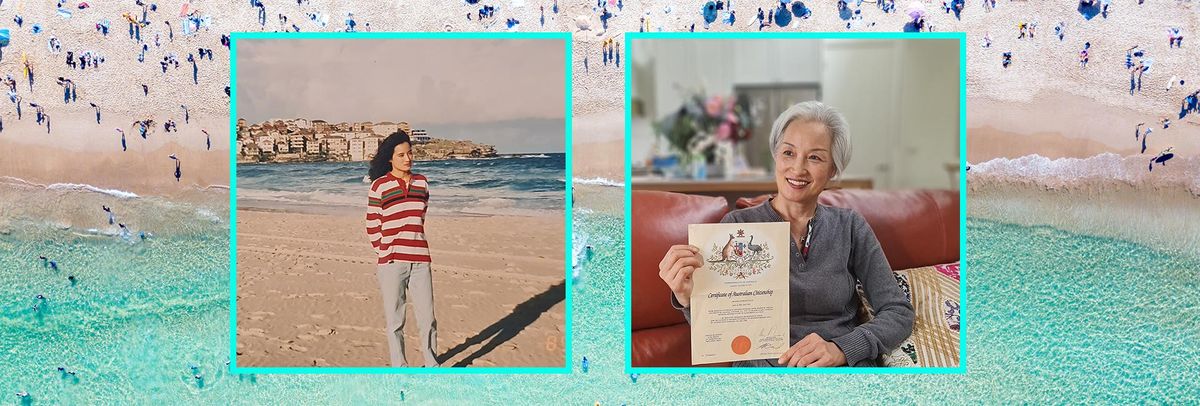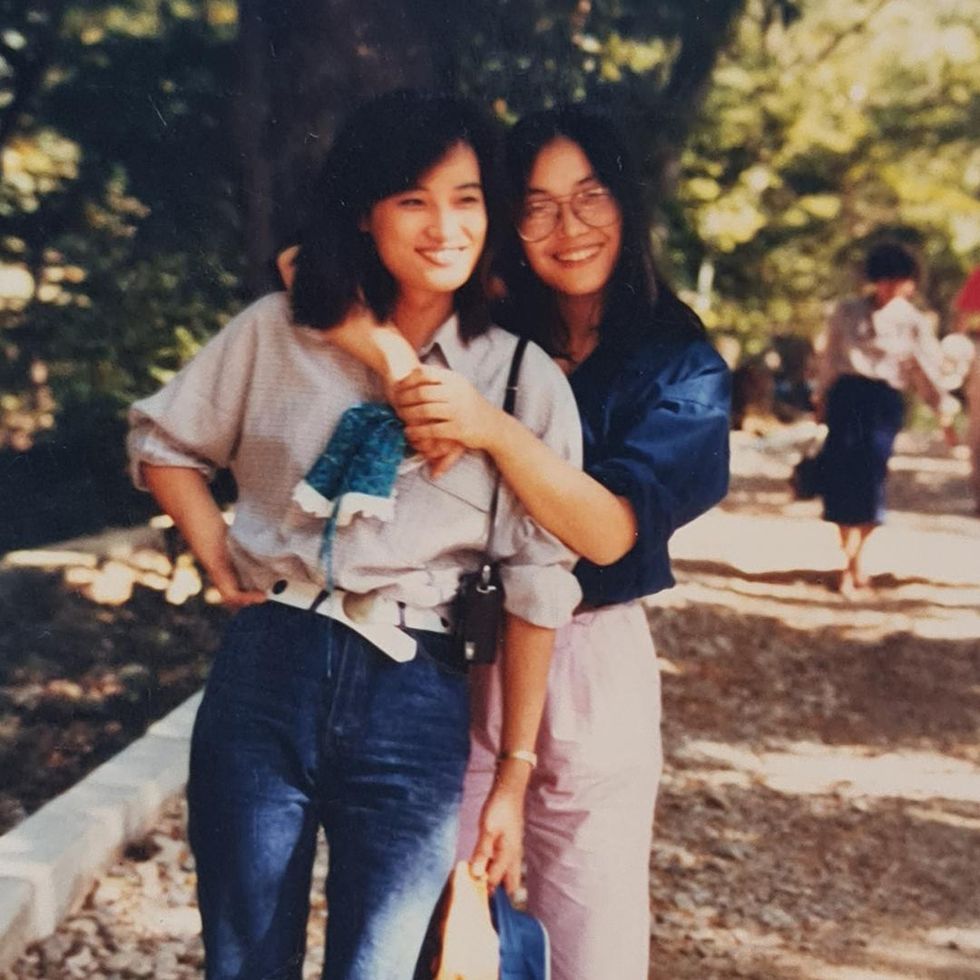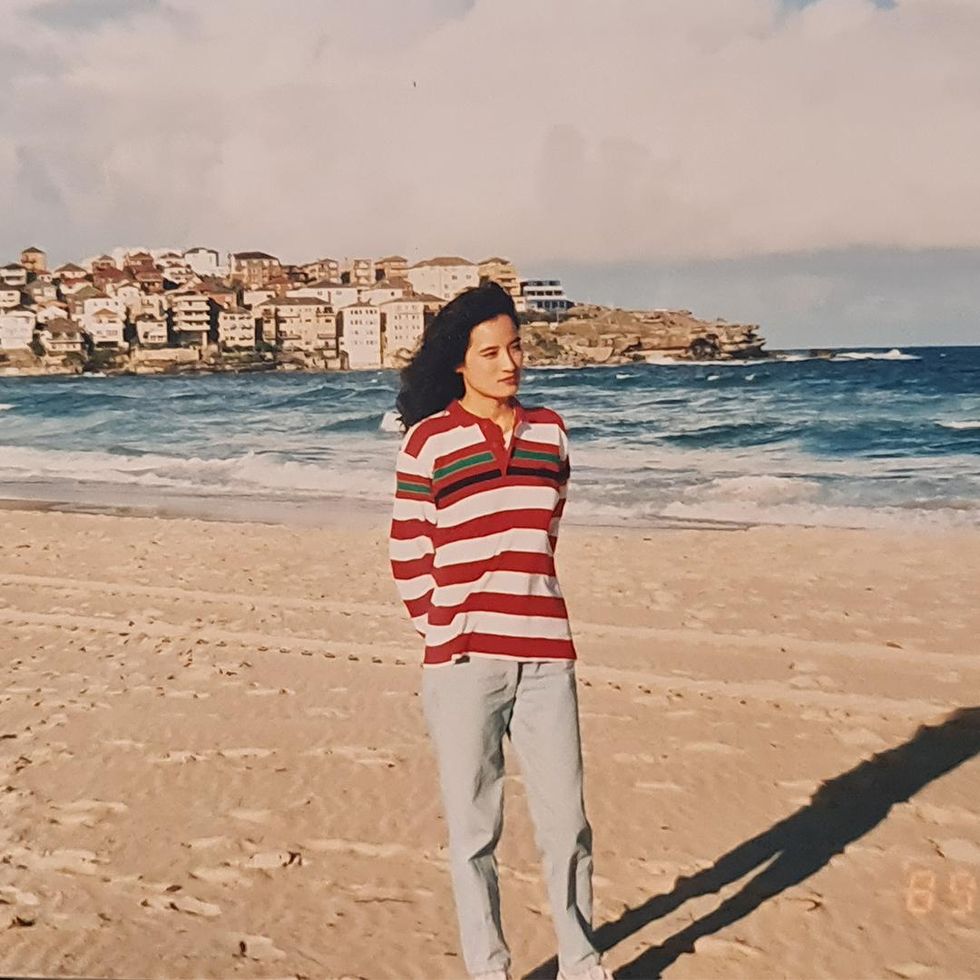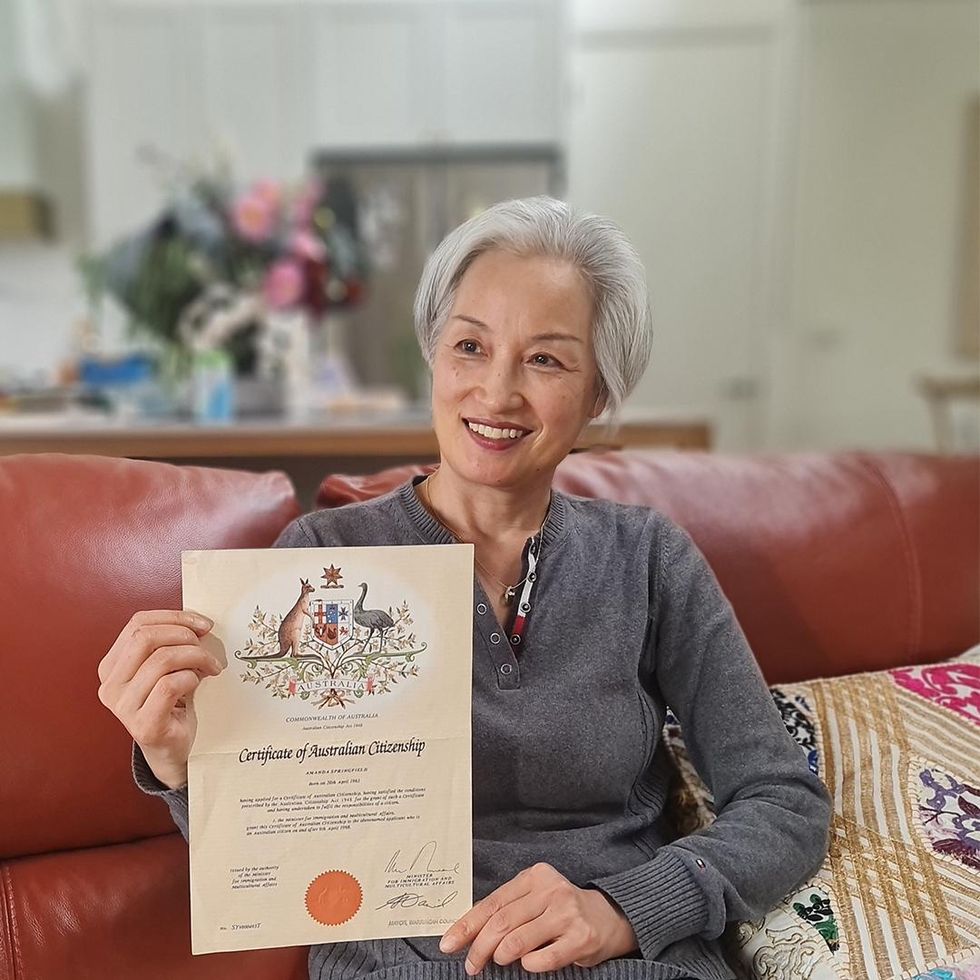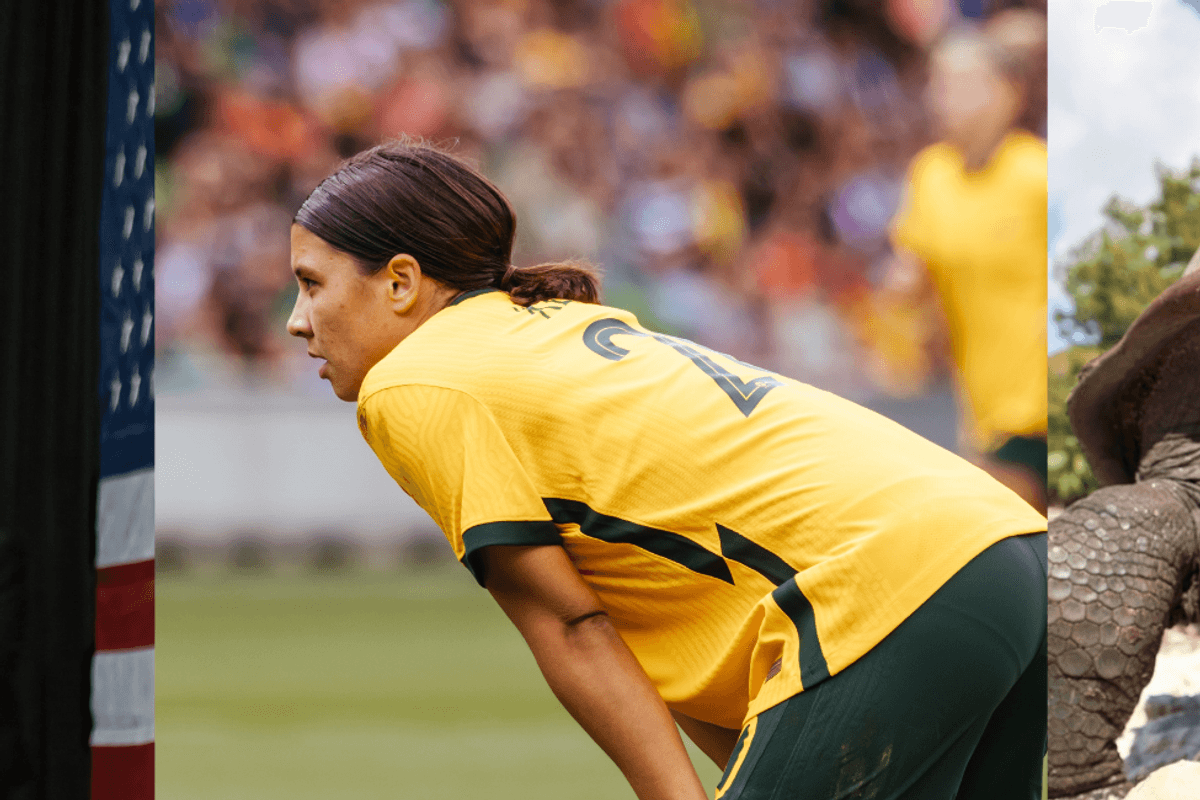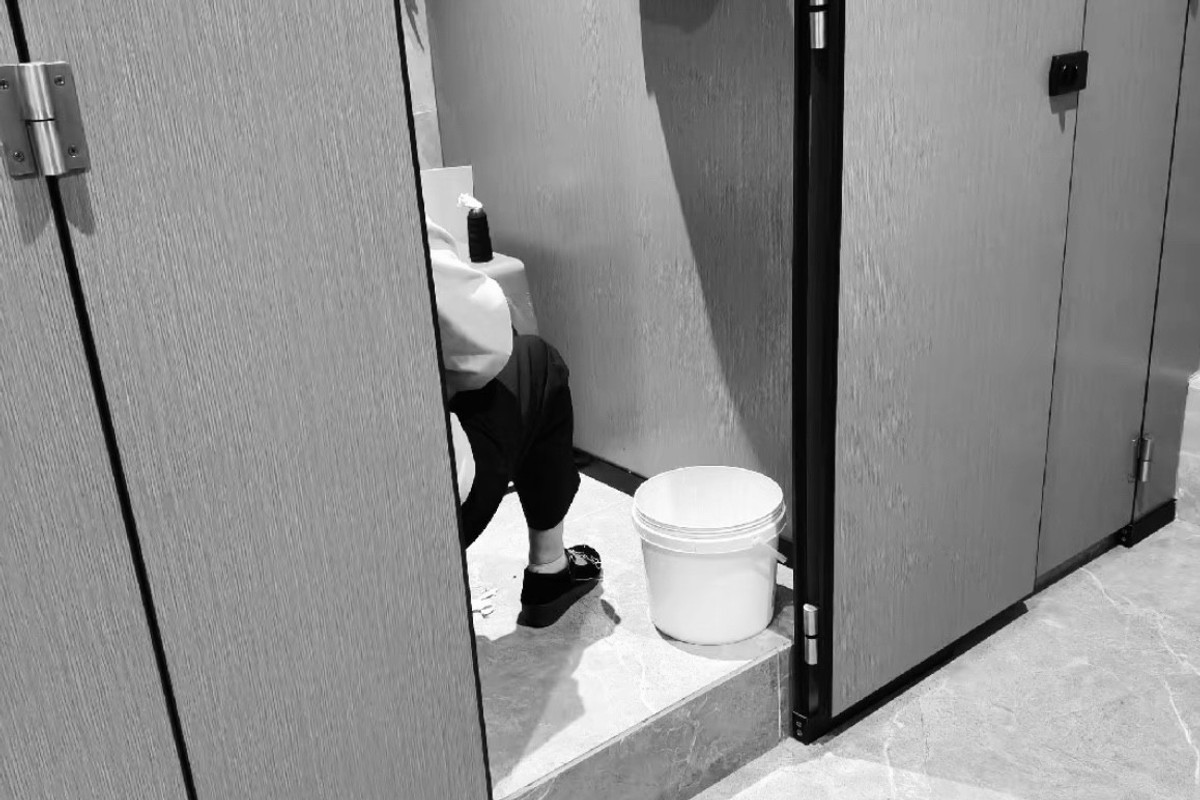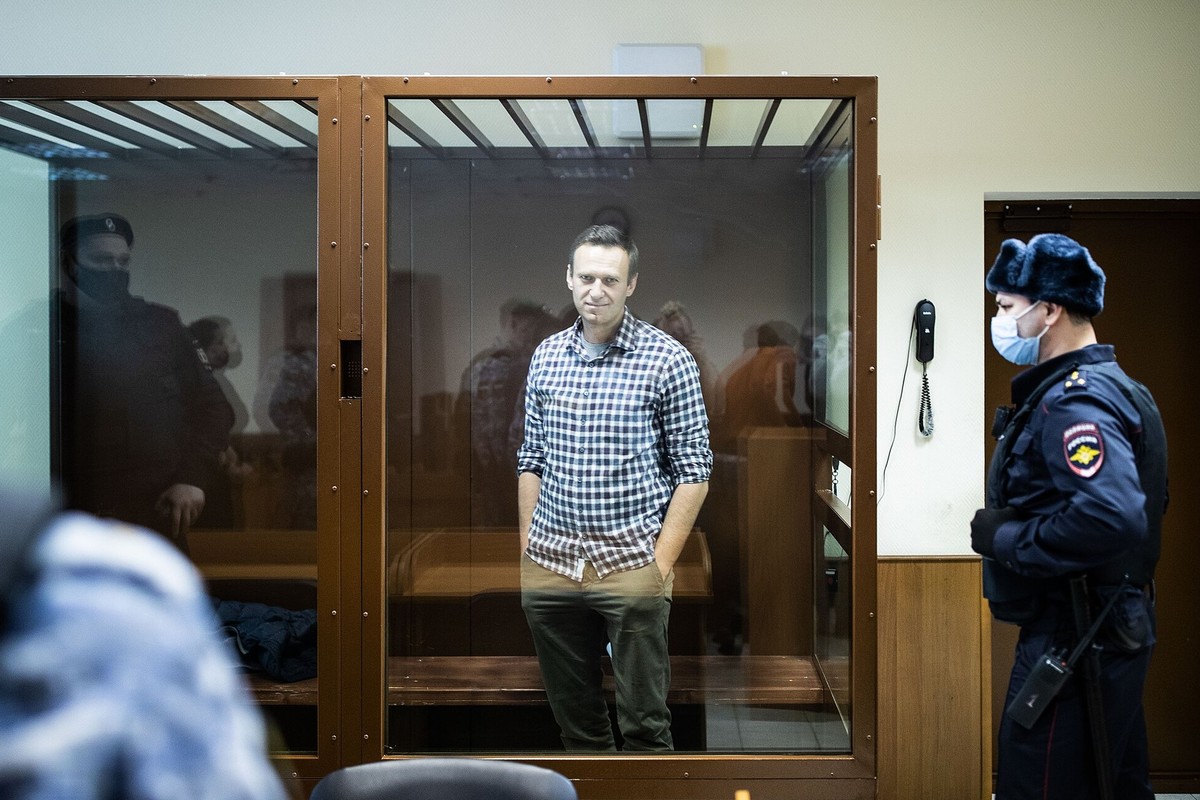How does national identity differ from citizenship, what role do they play in the celebration of Australia Day and is that identity something we ever lose?
“Must be an Asian driver,” she chuckled with a ‘see what I did there’ smirk smeared across her face. The car opposite us at the intersection, had turned into the oncoming lane at the lights by mistake.
Allow me to introduce Amanda Springfield, my Korean-born mother, who at that moment in time, could not have been more pleased with herself. I was stunned, impressed even. Mum has always embraced Australia, its lifestyle, culture, and at times, regrettably its sense of humour.
Me, not so much. I'll be happy when Australia Day is firmly in the rear-view mirror and “Aussies” can set patriotism and nationalism aside and shift their focus forward, towards whichever holiday will afford them their next long weekend. Too cynical? If so, it is perhaps fuelled by my own floundering sense of belonging and identity which seems to rear its head every January 26.
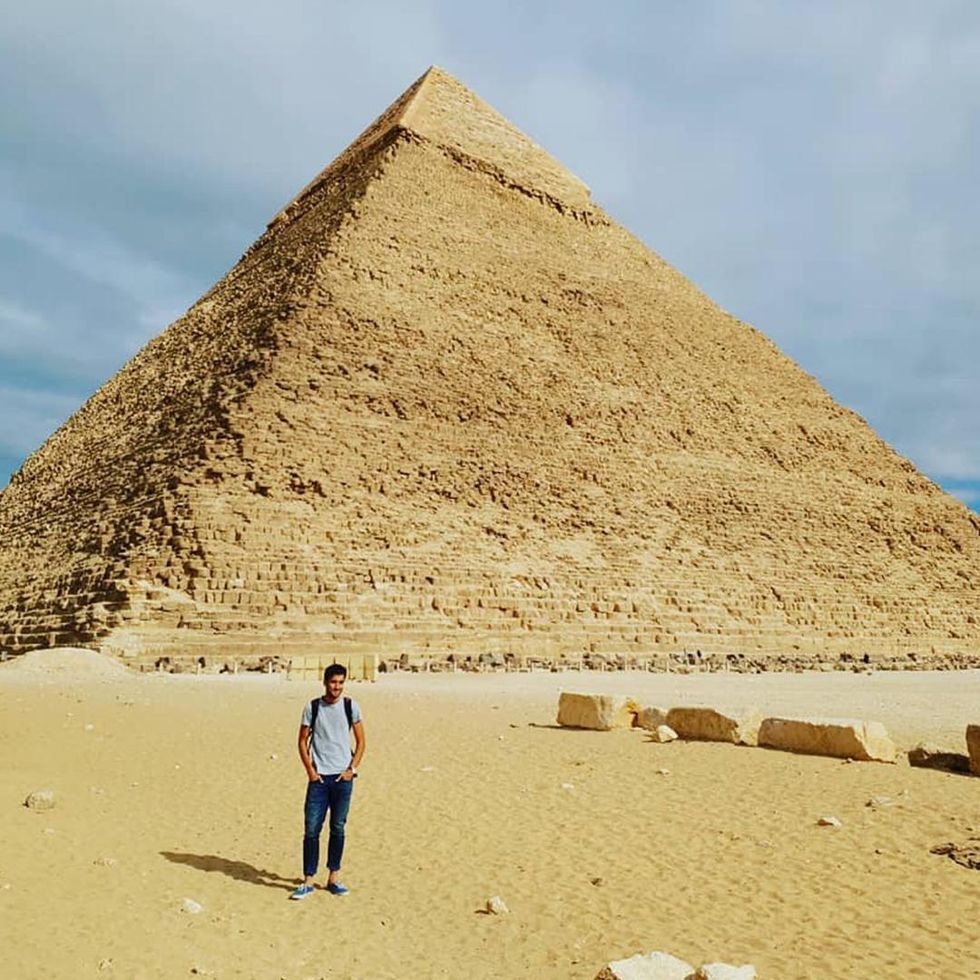
See, I am a "third-culture kid". Born in Australia to a Korean mother, Irish father. I’ve always been eager to explore new cultures or languages and feel quite comfortable shedding one set of colloquialisms and accent for another. This seems to be in line with others like myself and backed up by research on the topic. Most of all, I’ve wanted to leave this giant, sandy island in the middle of nowhere and get lost overseas, the same island my mother arrived on 33 years ago and immediately felt at home.
The thing I’ve learnt is that there is no such thing as being 'half-white'.
Before Amanda became an Australian, she was Park (family name first) Young-ae, a 27-year-old from the modest fishing town of Jinju, in the south of Korea. “I had never even heard of Australia,” she laughs, sitting with one leg up on her chair, hand on her knee in that way all children of Asian parents will recognise.
“I wanted to go to England but they told me I didn’t have enough money, Australia was cheaper.
“When I arrived, I lived at a homestay in Coogee with some other Korean people, we were a group … an English class,” she smiles, pouring through old photographs, giving each one a respectful moment’s pause. “Your dad was working there actually, but I wasn’t really interested in him then."
Now with a new home, name and identity, Amanda can’t imagine being anywhere else. So why is it that my mum is so enamoured with “the lucky country” but I’ve never felt quite at home? Don’t misunderstand me, I am very fond of it here. I love my footy, a sausage sizzle and a cold VB. I enjoy telling people they’re “cooked mate”, cranking up the Ocka and leaning into the many stereotypes that both bless and plague this sun-kissed nation. I am painfully aware of how “lucky” or privileged I should say that I have been to live here. I know I am Australian but have always felt somewhat adrift, Aussie-adjacent.
'Guess what Jono is?' was a recurring game my friends would play whenever we met new people.
The idea of celebrating a national day or having overwhelming pride in where you were born has always seemed a ridiculous concept to me. The tanned skin, brown hair and eyes probably haven’t helped when you have an Asian mother and “ranga” father who is as pale as a boiled potato. The thing I’ve learnt is that there is no such thing as being “half-white”. “Guess what Jono is” was a recurring game my group of friends would play whenever we met new people. A game I relished playing I should add. As the late, great David Bowie once said: “I’ve reinvented myself so many times that I’m in denial”. I wanted to be different, or perhaps I chose to be because I never thought I could fit in.
Researchers Catherine Austin and Farida Fozdar, argue “Australianness has become (or become conceptualised as) more diverse and more complex” in their article “Australian national identity”. While “more diverse and complex” is an idea that I can conceptually get my head around, the examples of who Australians regularly celebrate and hold up to the limelight can challenge this idea. The Anglo-masculine sporting larrikin model seems to always be in sharp focus. Look at the recent passing of that quintessential Aussie cricket legend Shane Warne. This is hardly his fault mind you, for his sins Shane was just an effortlessly loveable character that my mum thought was the bee’s knees.
My mum’s journey
In 1998, mum became an Australian citizen. Before then I don’t think I understood that she wasn’t technically Australian. She had many Korean friends, but she was always the most “Aussie” of them all. Her English was superior and we ate lamb cutlets more often than we did kimchi. Korea does not allow for dual citizenship, so I now wonder what it was about being Australian that was so desirable, enough for her to relinquish the passport of her home, her family and childhood. So, I visited my parents at home in the Blue Mountains to find out what made Australia so compelling, enough for her to make this bold decision.
“We didn’t really know much … but maybe Korean people think Aussies were lazy. Not working hard but surfing all the time,” Amanda recalls.
When she arrived, she was surprised by the friendliness. “I was so shocked at how relaxed and friendly people were. I was not used to everyone saying hello to you on the street or being patient. Life moved slower here, and you didn’t have to compete with everybody all the time.
“In Korea you always had to fight for a place, it was so busy. If you want to catch a train, you have to push. At shops if you want to be served you have to be quick, put your hands up, start ordering before someone else. I think it’s different now. Since the [1988] Olympic Games a lot of Western culture has changed things,” she says.
After more than 33 years in Australia, “when I go back now, I feel like a time-traveller. It has changed so much I don’t really fit in anymore. Here everything suits me, and I root for Australia at the Olympics or in soccer over Korea.
Although my mum says she is well and truly Australian now, she admits she will never really stop being Korean as well. “I still think in Korean most of the time actually,” she says, seemingly more surprised than I am at this realisation.
Amanda has latched on to being an Aussie with both hands, emanating a confidence I envy. I still wonder why my “Aussie-adjacent” disconnect exists, what the boxes are that I seemingly still have yet to tick.
It turns out, I’m not the only one concerned with the finer workings of “Aussie identity”. British-born actor, Miriam Margolyes, became an Australian citizen in 2013 and lives in the Southern Highlands with her Australian partner. In 2019, she took a journey through the heart of the country while filming a three-part docu-series on what being Australian really means.
She explored all the quintessential Aussie stereotypes, such as mateship, the Australian dream and how “lucky” we indeed are as a country — and put them all to the sword, questioning their validity and crucially, their inclusivity. Of the numerous people interviewed in the show, two stood out for me. The first was Afghan asylum-seeker Muj, whose parents were killed during the war and travelled to Australia by boat as a child. “I’m happy, I’m relaxed. I’m happy what I got, I’m proud who I became (sic),” he said, smiling through tears streaming down his face. “I’m safe here, I’m not going to die tonight.” When Margolyes asked how Australian he felt, his response was: “I’ve been living here 10 years, I can tell I’m Aussie because I barrack for Collingwood, my football club. I play AFL, that proves you’re Aussie”.
The second was Lidia Thorpe. She became Victoria’s first First Nations woman to be elected to the Australian Senate. She made it clear that Australia Day, for her, is Invasion Day. “When we see people having BBQs and parties on a day that represents theft and murder for us, we say it’s like dancing on our graves” she said. “The land is us; we don’t separate ourselves from the land, the water, the trees.”
My guilty realisation
My angst over being Aussie adjacent, over whether I am Aussie enough really begins to pale by comparison. No, citizenship and national identity are not the same thing but I am privileged with one and certainly take advantage of the other when convenient.
For my mum, Amanda, Australia Day is “a great day, an opportunity to be proud of this country and celebrate how lucky we are to be here … Maybe some people don’t feel so strongly but for me it’s a reminder of my new life and the country that I am now a part of.
“I think that there is something important here, we need to protect it and leave it for the next generation. That’s the most important thing,” Amanda says.
On the fracture between national identity and citizenship, Austin and Fozdar concluded “civic values can be held without feeling attached to the nation, which opens the door for other, more global or local, attachments”.
I realise I can still connect with cultures and embrace them as my own without the need to reject my origins. In fact, I shouldn’t. There is a guilty realisation that by burying my connection to Australia, with it, I bury the burden of responsibility that comes from 250 years of brutal colonial history. By dismissing Australia Day as just a holiday, I diminish its significance. It is symbolic, whether cast in a positive or negative light.
Mum puts the kettle on for a cup of tea before settling in to yell at the telly for the next hour and a half. “Are you coming to watch the game?” she asks. She absolutely loves watching the footy, and her team, the Panthers, are about to kick off.
Jonathon is in his final year as a Bachelor of International Studies/Media (Communications and Journalism) student. He is a football nut, musician and avid gardener. Returned from exchange at Lyon’s Université Jean Moulin, he is passionate about Politics and International Relations, Environmentalism, and Human Rights Advocacy.

